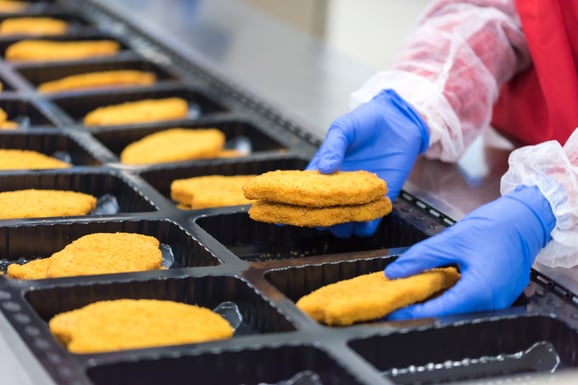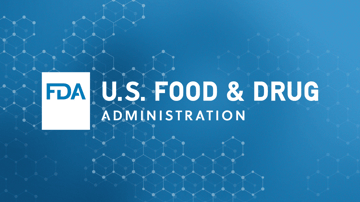The Food and Drug Administration (FDA) created the Food Traceability List (FTL), which identifies “high-risk” foods that require additional recordkeeping elements to be tracked in our food supply chains. These foods, which include various produce items, nut butters, seafood, soft cheeses, and fresh herbs, and the associated recordkeeping requirements will allow for faster identification and more rapid removal of potentially contaminated food from the market, resulting in fewer illnesses or deaths.
The FTL is detailed in Section 204 of the Food Safety Modernization Act (FSMA), which outlines the specific recordkeeping elements businesses will need to track along the supply chain. While the FSMA 204 compliance date isn’t until January 20, 2026, adjusting your business processes takes time and the sooner you can get started, the better prepared you’ll be.
This guide will provide the information you need to understand what foods are on the FTL so your company can prepare for the required recordkeeping necessary to meet the 2026 compliance date.
What Foods are on the Traceability List?
The FDA has the complete Food Traceability List available online and they noted in the Federal Register that they intend to update the FTL approximately every 5 years. When updates are made, they will be published on the Federal Register first, listing any proposed changes and allowing a period of public comment before finalizing. Once finalized, businesses will have a 2-year grace period before compliance is required. (Deletions from the list would be effective immediately.)
The FTL contains the following foods:
- Cheeses (excluding hard cheeses, frozen, shelf-stable, or aseptically processed and packaged cheeses), including:
- Fresh, soft or unripened soft cheese made from pasteurized milk (ex: cottage cheese, cream cheese, mascarpone, ricotta, etc.)
- Soft ripened or semi-soft cheese made from pasteurized milk (ex: mozzarella, feta, monterey jack, muenster, etc.)
- Cheese made from unpasteurized milk (other than hard cheeses)
- Eggs (shelled, only from domesticated chickens)
- Fish and seafood, including:
- Crustaceans (fresh and frozen) such as shrimp, crab, lobster, and crayfish
- Finfish (fresh, frozen, and/or smoked) that are histamine- or ciguatoxin-producing (or produce both) such as tuna, mahi mahi, grouper, snapper, cod, Alaska pollock, salmon, and more (excluding catfish or Siluriformes fish)
- Molluscan shellfish, bivalves (fresh and frozen) such as oysters, clams, and mussels (with some exceptions – see FTL)
- Fresh produce, including:
- Cucumbers
- Fresh-cut fruits (with some exceptions, see FTL)
- Herbs (includes all types of fresh herbs)
- Leafy greens (chard, various lettuces, arugula, fresh cut and mixed greens, etc.)
- Melons (cantaloupe, honeydew, muskmelon, and watermelon)
- Peppers (all varieties of fresh peppers)
- Sprouts (single and mixed sprouts, alfalfa, allium, bean, broccoli, etc.)
- Tomatoes (all varieties of fresh tomatoes)
- Tropical tree fruit (mango, papaya, guava, jackfruit, etc.)
- Excludes: non-tree fruits (bananas, dates, pineapples, etc.), tree nuts (coconut), pit fruits (avocado), and citrus fruits (orange, tangerine, lemon, lime, etc.)
- Other fresh-cut Vegetables (with some exceptions, see FTL)
- Nut butters (includes all types of tree nut and peanut butters, i.e.: butter from almonds, walnuts, hazelnuts, coconuts, etc.)
- Ready-to-eat deli salads (includes all types of refrigerated deli salads, ex: egg salad, potato salad, pasta salad, and seafood salad. Excludes meat salads.)
If you recognize a food on this list that your business handles on the supply chain, we recommend checking the FTL for exclusions and more information.
What About Food Ingredients?
While the FTL lists out single-item foods that require traceability data, FTL foods used as ingredients are also impacted. For example, salmon and crab meat that is made into frozen crab and salmon cakes, muenster cheese that is added to deli sandwiches, or peanut butter used in peanut butter sandwich crackers – all these items will require traceability data.

History of the FTL
The FDA created the FTL based on the results of a Risk-Ranking Model for Food Tracing that was first proposed in 2014. The model helped the FDA determine which foods would be included on the FTL based on the frequency of outbreaks, severity of illnesses, likelihood of contamination, cost of illness, and consumption rate, among other metrics.
Public comments and risk scores impacted the foods chosen for the list. By September 2020, the FDA announced a proposed FTL, which was finalized with FSMA 204 in November 2022.
What Recordkeeping Requirements Are There for Foods on the FTL?
All the foods on the FTL will need to be recorded along the supply chain from their point of origin through production, processing, transformation, shipping, cooling, and final destinations. FSMA Section 204 outlines all the elements required for recordkeeping, and you can read about it on our FSMA Fundamentals blog post.
There are also specific rules for the records being kept, which will help the FDA quickly identify and track down potentially contaminated foods. The Final Rule of FSMA 204 outlines the recordkeeping requirements:
- Records must be maintained for 2 years, and kept in original paper, electronic, or true copies that are stored properly to prevent deterioration or loss.
- If the FDA requests records, the business should be able to provide those records within 24 hours of the request (or within a reasonable time if the FDA agrees).
- Businesses will also need to provide any information that will help the FDA interpret records, such as translations if they’re in another language.
- Records can be stored offsite, in a centralized location, or by another entity, as long as they can be delivered to the FDA within the designated time frame.
While the FDA does allow businesses to use paper spreadsheets to record these steps, it’s easy to see how this information can get overwhelming or missed. Luckily, there are digital, tech-enabled tracking and recordkeeping solutions that can help businesses better manage these elements and maintain compliance with FSMA 204 requirements.
Where Can Businesses Get Started?
Don’t let the FSMA 204 legislation catch you by surprise or overwhelm you. While there are some critical elements that will take time to implement, you business can get started today by accessing our Free FSMA Consult. Our experts will walk you through what foods on the FTL you may need to track, and how your business can be set up for success long before the 2026 compliance deadline arrives.
Contact us today to learn more about FoodLogiQ’s end-to-end traceability and recall management solutions.
Other posts you might be interested in
View All Posts
Food Safety
11 min read
| October 7, 2022
COUNTDOWN TO FSMA 204: 1 Month to Go
Read More
Food Industry
16 min read
| December 8, 2023
FSMA 204 Tools for Success: Creating a Food Traceability Plan
Read More
Traceability
6 min read
| January 29, 2021

